


IDFI (Institute for Development of Freedom of Information) was involved in international monitoring of governmental online openness and transparency, initiated by the nongovernmental organisation, Freedom of Information Foundation, based in Russia. Together with Georgian and Russian organisations, civil society members from Belarus and the USA participated in the survey.
The monitoring aimed to determine whether it is possible to create a worldwide measure for the openness of governments.
The research methodology was created by Freedom of Information Foundation, which has been conducting an audit of the websites of Russian governmental organisations since 2004. The survey is based on measures similar to parameters (categories of information which must be published on the websites, in accordance with regulatory requirements and expertise) measured according to a set of criteria (availability, degree of completeness, degree to which it is kept up to date, ease of navigation etc).
In 2010 this organisation launched an automated information system, Infometer, which optimizes the work of experts on evaluating websites by minimizing the possibility for error. The basis of the system is software written by experts at the Foundation with an open code, which you can adapt to any other survey method of web-content analysis, and so localize it for other countries. The survey method and the Infometer system make together an effective instrument for the assessment of the governmental openness, which has proved itself in Russia, and they wished to try it in the framework of a comparative international survey.
Researchers worked out survey parameters which were universally applicable to each partaking country. Before choosing the information categories (whose presence among government resources was subjected to evaluation), they firstly considered their significance for public oversight. In their view, the categories of information listed below illustrate the degree to which a culture of proactively publishing information on the internet has been developed in one government or another.
• Information on voting in the highest legislative body
• Information about meetings held by the highest executive body
• The State budget
• State and local procurement
• Legislation
• Court rulings
• Legal entities' founders and participants
• Information about the real estate owners
• Information about taxes paid by individuals and organisations
• Information about the income of civil servants
• Persons hosted by the State head
• Local crime statistics
• Information for voters
• State archives
• Cartographic information
• Individuals’ theses
The most important measure was the ability to find the required information on government websites, namely the websites of government agencies or other internet resources, whose contents are monitored by civil servants. The ability to acquire such information on request was not taken into account.
Summary Results
Average openness rate over all countries and all information categories amounts to 45.1% (detailed evaluation scores for each country are available in the Infometer system).
The most interesting results of the international monitoring could be considered the exposure of “closed” categories of information (those not represented on government websites in any of the countries surveyed).
• The ability to search for information regarding taxes paid by citizens and organisations. In not a single one of the participant countries was information about the total amount of taxes paid by each individual (civic or legal entity) available on their Internet site. As a rule, the only information available was that regarding the total amount of taxes paid by individuals for a specific period. At the same time, this information is public in a number of countries, including Finland, Norway, Sweden, and Pakistan.
• Number of funding spent by the central executive government body (the ministry) for official events and services for representatives of other organizations negotiating for establishment and support of cooperation with this body
• The ability to search the full text of dissertations written as part of an individual’s undergraduate degree by their name and surname. (Although a number of non-governmental organisations work on this information). Amount of funds spent by the federal executive body (the ministry) on official receptions and the service of representatives of other organisations which take part in negotiations for the purpose of establishing and maintaining cooperation with a particular authority
• The ability to search for information about a legal person (entity) by their participants. The practical availability of such a resource was not evident in a single one of the countries surveyed.
Georgia
Organization: Institute for Development of Freedom of Information
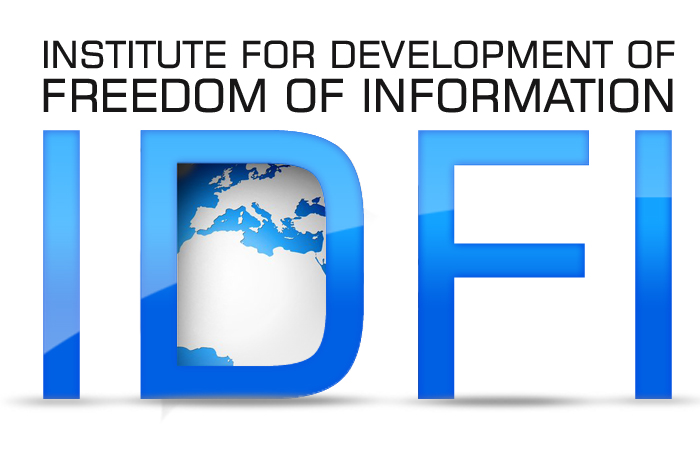
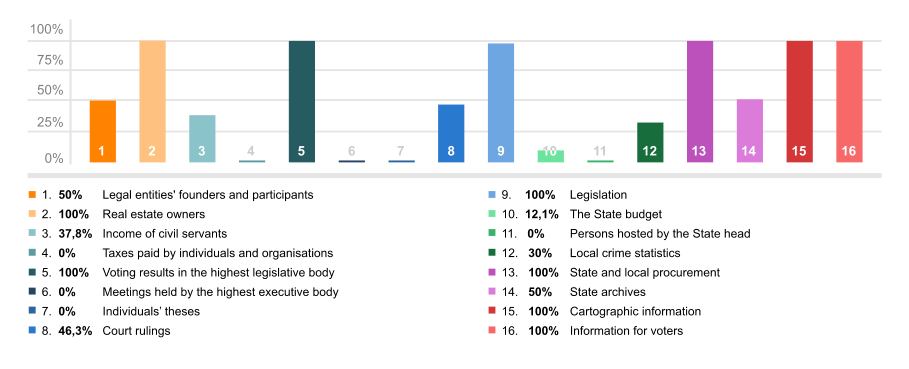
Unites States
Organization: National Security Archive at George Washington University

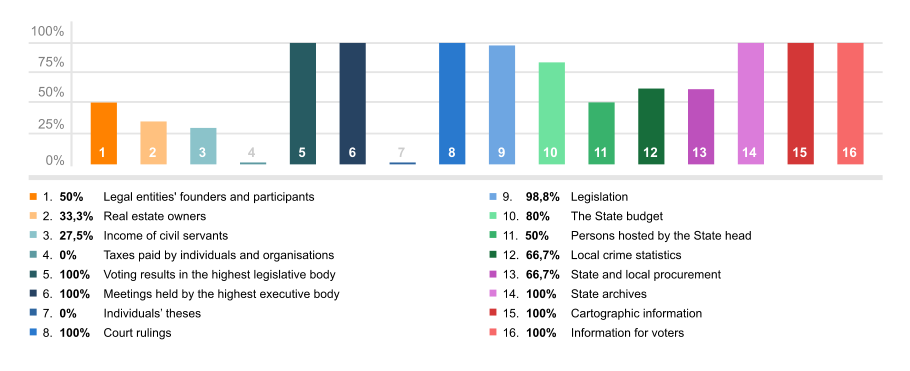
The Russian Federation
Organization: Foundation of Freedom of Information
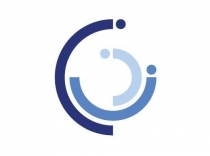
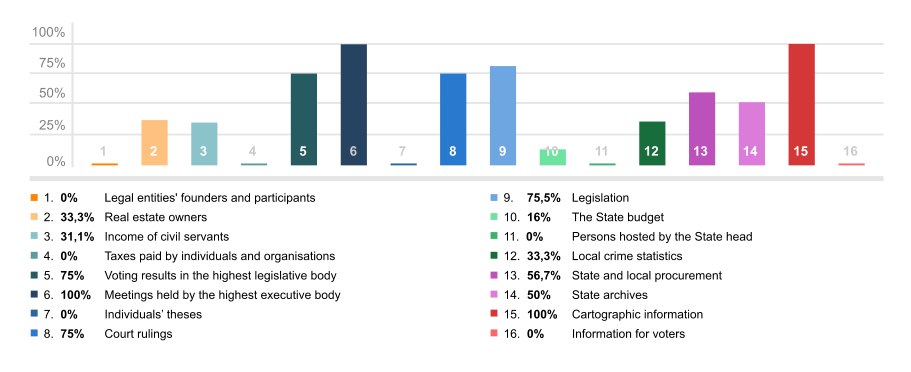
Republic of Belarus
Organisation: «Lawtrend» Legal Transformation Center
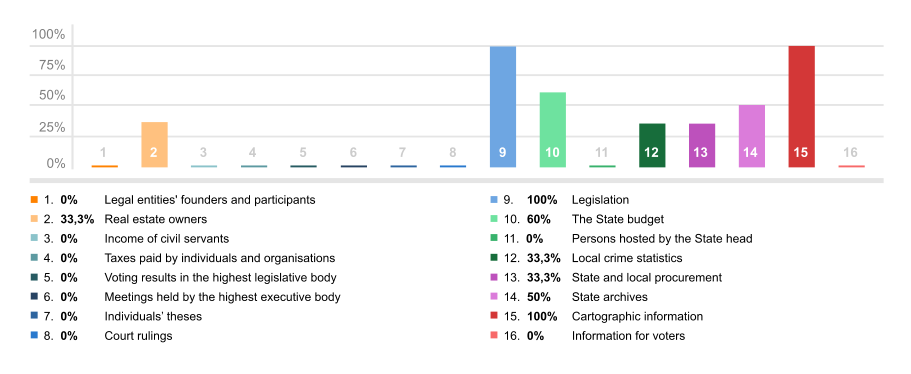
The following categories of information could be described as “rare” (they were represented only in one country):
Only in the USA:
• A majority of decisions made by courts are available, along with the individual contributions of actual participants in the legal process
• The possibility of using the number (address) of a police unit (section) to find out the number of crimes committed in the area assigned to that particular unit over the last fiscal year
• The possibility of using the number (address) of a police unit (section) to find out the number of crimes committed in the area assigned to that particular unit over the previous fiscal year
• Crime map
• A majority of sites of police units in the USA provide crime maps, on which are indicated the scene of the crime (including the street on which it occurred), the time and the type of crime committed
Only in Georgia:
• The ability to search for the real estate objects owned by individuals by name of owner (the full name of legal entities)
• The ability to search for information about the income of a high official by the position and (or) name of the civil servant
• The ability to search for information about the income of high official’s spouse by the position and (or) name of the civil servant.